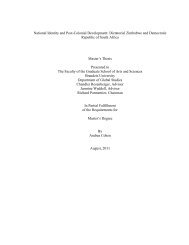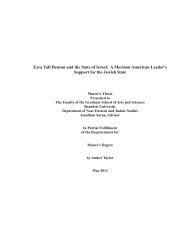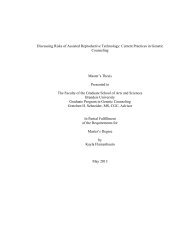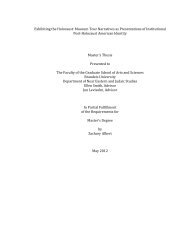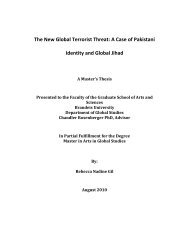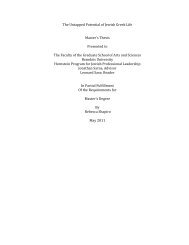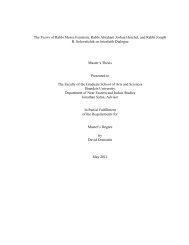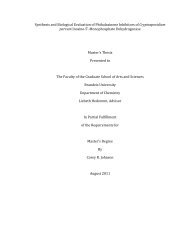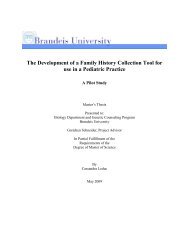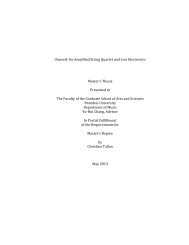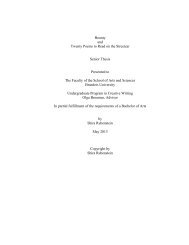A Familiar Frontier: The Kennedy Administration in the Congo ...
A Familiar Frontier: The Kennedy Administration in the Congo ...
A Familiar Frontier: The Kennedy Administration in the Congo ...
You also want an ePaper? Increase the reach of your titles
YUMPU automatically turns print PDFs into web optimized ePapers that Google loves.
advisers were pay<strong>in</strong>g much attention when <strong>the</strong> situation <strong>in</strong> <strong>the</strong> <strong>Congo</strong> started to smolderdirectly after <strong>the</strong> nation ga<strong>in</strong>ed its <strong>in</strong>dependence on June 30, 1960. To <strong>the</strong> extent thatofficials at <strong>the</strong> high levels of U.S. government took notice of <strong>the</strong> develop<strong>in</strong>g crisis, it wasto articulate disda<strong>in</strong> for Patrice Lumumba, <strong>the</strong> young, enigmatic Prime M<strong>in</strong>ister of <strong>the</strong>new nation. Allen Dulles, <strong>the</strong> Director of Central Intelligence, described Lumumba’sbrand-new government to <strong>the</strong> National Security Council as “weak” and characterized by“a leftist t<strong>in</strong>ge.” 1 Dulles would prove himself to be one of <strong>the</strong> most vocal critics ofLumumba, a position for which <strong>the</strong>re was not a small amount of competition. Hissimplistic comments will show not only <strong>the</strong> bl<strong>in</strong>d<strong>in</strong>g power of Cold War anti-Communism, but also his casual treatment of facts. Newly-appo<strong>in</strong>ted Ambassador ClareTimberlake was ano<strong>the</strong>r who expressed concern that Lumumba was a wild card, and that<strong>the</strong> <strong>Congo</strong> was not yet ready to handle its owns affairs as an <strong>in</strong>dependent nation. Yet<strong>the</strong>re is little evidence that Eisenhower or his top aides were putt<strong>in</strong>g much effort <strong>in</strong>tounderstand<strong>in</strong>g <strong>the</strong> particularities of Lumumba or <strong>the</strong> <strong>Congo</strong> itself. <strong>The</strong> muted Americanreaction <strong>in</strong> <strong>the</strong> early days of <strong>the</strong> <strong>Congo</strong> crisis tends to validate <strong>Kennedy</strong>’s criticisms.Eisenhower’s disengagement is particularly egregious because violence hadbroken out <strong>in</strong> an area of which <strong>the</strong> President, and <strong>the</strong> vast majority of <strong>in</strong>ternationalobservers, had little prior knowledge. <strong>The</strong> <strong>Congo</strong> was not controlled by a major imperialpower like France or Great Brita<strong>in</strong>, nor had it been a likely candidate for <strong>in</strong>dependence.In <strong>the</strong> late 1950s, a wide variety of African colonies of European imperial powers beganto agitate seriously for <strong>in</strong>dependence, <strong>the</strong> catalyst hav<strong>in</strong>g come <strong>in</strong> 1957 when <strong>the</strong> Britishcolony of <strong>the</strong> Gold Coast declared itself <strong>the</strong> <strong>in</strong>dependent nation of Ghana, yet <strong>the</strong>re wasnot yet a noteworthy <strong>in</strong>dependence movement <strong>in</strong> <strong>the</strong> <strong>Congo</strong>. French President Charles de1 Editorial Note, Foreign Relations of <strong>the</strong> United States (FRUS), 1958-1960, 14:28013





